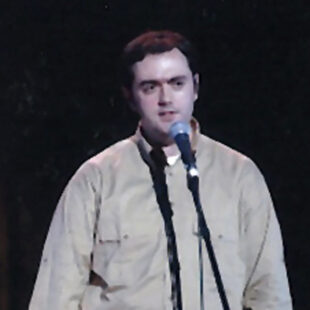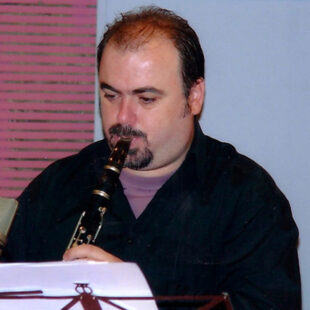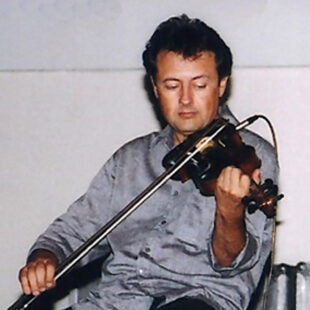00:00
Home / Her Work / Song Catalogue / Four, Five, Nine Brothers
Four brothers, five brothers, nine,
eighteen cousins, none destined to grow to man’s estate,
were by royal command to go and fight
twelve long years in the wars.
When they whet their swords, the sea glistens;
when their staffs clash, the mountains tremble.
Travelling the road to the muster,
they happened on a deep dry well:
forty fathoms wide and a hundred deep.
Lots were drawn, thrown back and drawn again;
but the short straw fell to Kostas, the youngest, every time.
“Lower away, brothers, and I shall find us water”.
They lowered him half-way down and he was filled with fear.
“Brothers, pull me up, there’s no water to be found”.
“We pull and pull some more, but there’s still no sign of you”.
“Then have my horse pull, too, harnessed to this rope”.
“Your horse pulls and pulls, but there’s still no sign of you”.
“Then have my armour pull, too, harnessed to this rope”.
“Your armour pulls and pulls, but there’s still no sign of you”.
“Let me go, brothers, and fare you well”.
Translated by Michael Eleftheriou
Τα τέσσερα, τα πέντε, τα εννιάδερφα,
τα δεκαοχτώ ξαδέρφια τα ολιγόημερα,
ένα φερμάν’ τους ήρθε απ’ το βασιλιά
να παν να πολεμήσουν χρόνους δώδεκα.
Τροχούνε τα σπαθιά τους, λάμπ’ η θάλασσα,
βροντοχτυπούν κοντάρια, τρέμουν τα βουνά.
Στο δρόμο που πηγαίνουν κι όπου πήγαιναν,
βρίσκουν ένα πηγάδι, ξεροπήγαδο:
σαράντα οργιές το πλάτος κι εκατό βαθύ.
Σκουρτίζουν, ξεσκουρτίζουν, ρίχνουν το λαχνό
κι όλο του Κώστα πέφτει, του μικρότερου.
«Κρεμάστε με, βρ’ αδέρφια, για να βρω νερό».
Και ως τη μέση πήγε και φοβήθηκε.
«Τραβάτε με, βρ’ αδέρφια, δεν ηύρα νερό».
«Εμείς τραβούμε, Κώστα, συ δε φαίνεσαι».
«Βάλτε και τ’ άλογό μου να τραβήξ’ κι αυτό».
«Κι αυτό τραβά, βρε Κώστα, συ δε φαίνεσαι».
«Βάλτε και τ’ άρματά μου, να τραβήξ’ν κι αυτά».
«Κι αυτά τραβούν, βρε Κώστα, συ δε φαίνεσαι».
«Αφήστε με, βρ’ αδέρφια, κι αντέτ’ στο καλό».
Nine brothers set off, armed for war. Parched upon arrival at a well, they draw lots to decide who will climb down to fetch water. The task falls to the youngest, Kostas, who —though his death is only assumed in this version— is, in most variants, killed by the demon lurking in the depths.
Intensely mythical in tone, the song’s reception reflects a tendency among earlier generations of ethnographers to “historify” its heroic elements, projecting onto the folk tradition the imagined glories of Byzantium. Identified, like so many others, with the acritic cycle, the song’s symbolic elements were long regarded as survivals of ancient Greek myth. In truth, however, the song contains no historical dimension: it is a fabulous narrative.
Hatred toward the youngest brother, Kostas — a hero often sacrificed (recalling the biblical story of Joseph, who was also cast into a well by his older brothers); the descent into the well (a symbol of dark psychic or sexual turmoil); the offering of a young man to an infernal demon — these are all standard motifs and symbols commonly found in songs, fairy tales, and legends worldwide.
Miranda Terzopoulou (2008)
Studio recording (2006). The song is performed following the 1987 interpretation of Eurykleia Sourou, a native of the village Petsali in Epirus.

Singers

Clarinet

Violin

Tambourine